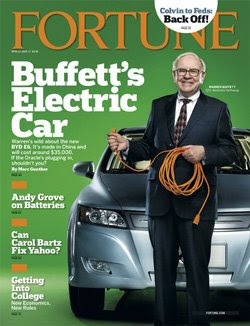
Our Green Mobility revolution will have geopolitical implications, that is why we think that Lithium supply will become another Strategic issue in the nearest future. We are placing bets early into the next bull market.
By Pike Research - Matter Network
By Dave Hurst
Much of the next generation of automobile will be (at least initially) based on battery chemistry that currently is similar to that which powers laptops, mobile phones, and other consumer electronics - lithium ion (Li-ion). This raises the question, where does all that lithium come from?
At the moment, China provides a lot of the batteries that go into consumer electronics, and Tibet is known to have a large source of lithium. Additionally, estimates are that Bolivia has the largest reserves of lithium in the world with 36% of the global pie. Currently, the U.S. holds about 3% of world reserves.
The good news is that most experts have come to the conclusion that there is not an impending lithium shortage as many suspected there would be. There have been arguments put forth showing that lithium will actually run short within the decade. However, many have refuted this saying that even with the development of electric vehicles, lithium will be around for much longer than a decade.
The bad news is that the politics of lithium are quickly likely to become a hot issue for battery builders.
Regardless of whether they believe lithium is running out sooner or later, most experts have come to agree that lithium's greatest abundance is in Bolivia, Chile, and Tibet. Bolivia's president, Evo Morales, is already trying to avoid foreign investment, and talks consistently about the importance of Bolivia having state control over its natural resources. Automakers approaching Bolivia have not received a warm welcome either. The challenges China faces in Tibet (politically speaking) are already well publicized.
As the growth of lithium usage in both auto and larger stationary batteries grows, the U.S., South Korea, Japan, and China are all going to be facing some complicated politics with lithium that may have a surprisingly familiar ring to it. Estimates show that 75% of lithium is likely to come from South America. Despite a history of tensions between Chile (about 20% of world reserves) and Bolivia, the politics between them have been growing more friendly since 2005. A future governing body for South American lithium trying to set world pricing (similar to OPEC) would not be too much of a stretch of the imagination.
Once the consumer market has accepted plug-in hybrids and electric vehicles, the challenge facing battery and automakers, it seems, may be to see how quickly they can move to a new chemistry less reliant on lithium. (Though, don't be surprised to see politics surface with the "next big thing" as well...)"
By Dave Hurst
Much of the next generation of automobile will be (at least initially) based on battery chemistry that currently is similar to that which powers laptops, mobile phones, and other consumer electronics - lithium ion (Li-ion). This raises the question, where does all that lithium come from?
At the moment, China provides a lot of the batteries that go into consumer electronics, and Tibet is known to have a large source of lithium. Additionally, estimates are that Bolivia has the largest reserves of lithium in the world with 36% of the global pie. Currently, the U.S. holds about 3% of world reserves.
The good news is that most experts have come to the conclusion that there is not an impending lithium shortage as many suspected there would be. There have been arguments put forth showing that lithium will actually run short within the decade. However, many have refuted this saying that even with the development of electric vehicles, lithium will be around for much longer than a decade.
The bad news is that the politics of lithium are quickly likely to become a hot issue for battery builders.
Regardless of whether they believe lithium is running out sooner or later, most experts have come to agree that lithium's greatest abundance is in Bolivia, Chile, and Tibet. Bolivia's president, Evo Morales, is already trying to avoid foreign investment, and talks consistently about the importance of Bolivia having state control over its natural resources. Automakers approaching Bolivia have not received a warm welcome either. The challenges China faces in Tibet (politically speaking) are already well publicized.
As the growth of lithium usage in both auto and larger stationary batteries grows, the U.S., South Korea, Japan, and China are all going to be facing some complicated politics with lithium that may have a surprisingly familiar ring to it. Estimates show that 75% of lithium is likely to come from South America. Despite a history of tensions between Chile (about 20% of world reserves) and Bolivia, the politics between them have been growing more friendly since 2005. A future governing body for South American lithium trying to set world pricing (similar to OPEC) would not be too much of a stretch of the imagination.
Once the consumer market has accepted plug-in hybrids and electric vehicles, the challenge facing battery and automakers, it seems, may be to see how quickly they can move to a new chemistry less reliant on lithium. (Though, don't be surprised to see politics surface with the "next big thing" as well...)"
No comments:
Post a Comment